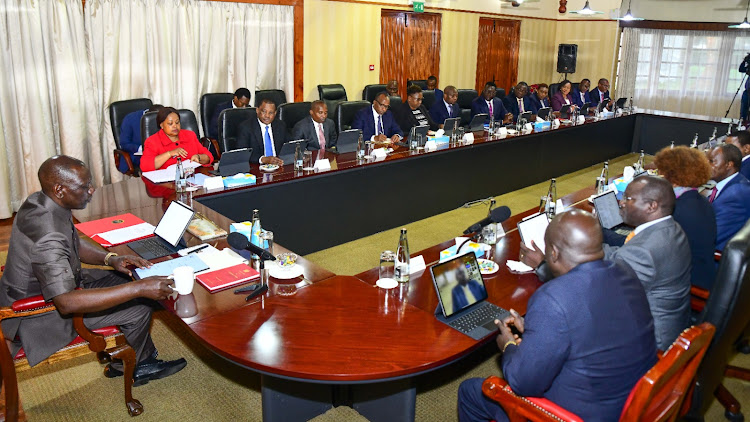PRESIDENT RUTO TEND TO FAIL TO SIGN THE FINANCIAL BILL 2024 AHEAD OF LOOMING PROTESTS TOMORROW


President William Ruto’s decision to decline signing the Finance Bill, 2024, has sparked significant procedural and political discussions within Kenya’s legislative framework. This bill, pivotal for fiscal policy, including tax rates and economic strategies, now faces a complex path back to Parliament following the president’s actions.
According to sources from State House reports, the President intends to send the bill back to Parliament with proposed amendments. This move indicates possible disagreements or reservations about specific provisions within the bill. The President’s proposed amendments will now require Parliament’s consideration before the bill can proceed further.
The process outlined involves Parliament reviewing the President’s proposed amendments. There are several potential outcomes:
1. Full Amendment Accommodation: If Parliament agrees to amend the bill fully in line with the President’s reservations, the Speaker will resubmit it to the President for assent.
2. Partial Amendment or No Amendment: Alternatively, Parliament may pass the bill a second time without fully accommodating the President’s amendments. If this occurs, it would require support from two-thirds of the members present.
Given the timeline and Parliament’s impending recess until July 23rd, there is urgency in resolving the bill’s status before MPs break. Should the President return the bill today, the Speaker might need to recall Parliament to address the amendments promptly.
The Finance Bill, 2024, initially included contentious proposals such as a 16% VAT on bread, excise duty on vegetable oil, and VAT on transportation of sugar and a 2.5% motor vehicle tax, all of which have since been removed during the bill’s progression through the committee of the whole house. This legislative process underscores the intricacies of governance and the balance of power between the executive and legislative branches in shaping Kenya’s economic policies. It also highlights the importance of thorough scrutiny and consultation in enacting legislation that affects the country’s economic landscape and welfare of its citizens
















